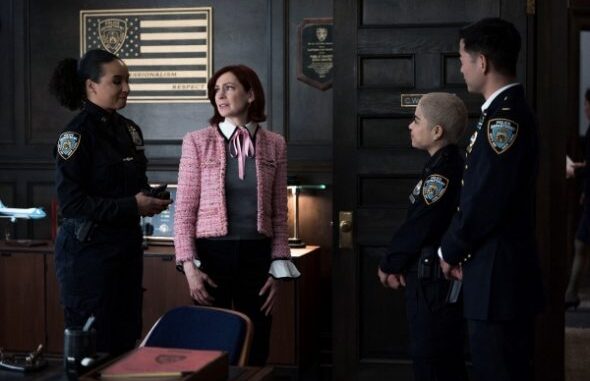
The Joy of the Untethered Mind: Carrie Preston on Playing Elsbeth
In the landscape of television, where brooding detectives and jaded lawyers often dominate the crime procedural, Elsbeth Tascioni arrived like a brightly colored bird among a flock of pigeons. Her sartorial choices, her endearing social awkwardness, and her unique, circuitous path to undeniable truth make her an anomaly, a breath of fresh air. It’s no wonder then, that for the actress who brings her to life, Carrie Preston, playing Elsbeth is "the most fun I’ve ever had." This declaration isn’t merely a casual compliment; it’s a profound insight into the liberation and creative joy that comes from embodying a character so delightfully untethered, so inherently optimistic, and so utterly brilliant in her own idiosyncratic way.
From her initial appearances on The Good Wife and The Good Fight, Elsbeth was always a revelation. She was the legal equivalent of a kaleidoscope: seemingly random fragments of thought spinning into a surprisingly coherent, beautiful, and undeniable truth. Preston’s genius lies in her ability to perfectly calibrate Elsbeth’s disarming charm with her razor-sharp intellect. She doesn't just play quirky; she inhabits a mind that genuinely operates on a different frequency. For an actor, this is a playground. The freedom to wander off-script mentally, to deliver lines with a non-sequitur beat, to let a character’s eyes dart around a room soaking in details no one else registers – this is the antithesis of the rigid, often grim performances demanded by conventional legal dramas. Preston gets to play with the material, to discover new facets of Elsbeth’s inner world with every scene, making each moment an act of fresh, unburdened creation.
The "fun" also stems from Elsbeth’s relentless optimism and unshakeable belief in justice, even when confronted with the darkest aspects of human nature. In a genre often steeped in cynicism, Elsbeth is a beacon of light. She doesn't carry the weight of past traumas or the burden of a jaded worldview. She approaches each case with a genuine curiosity and an almost childlike wonder at the puzzle before her. For Preston, who has explored characters with much heavier emotional baggage (like Arlene Fowler on True Blood or the various complex women she’s played throughout her career), Elsbeth offers a unique respite. It’s the joy of embodying a character who, despite her unconventional methods, always believes in the inherent goodness of solving a problem, of righting a wrong. This positive core allows Preston to lean into the character’s more whimsical elements without ever sacrificing her intelligence or efficacy.
Moreover, Elsbeth Tascioni is a character who consistently defies expectations – both of those around her and of the audience. She's underestimated, overlooked, and often dismissed, only to reveal herself as the most perceptive person in the room. This arc, repeated in every episode, is inherently gratifying. For Preston, it means she gets to surprise and delight with every beat. She can let Elsbeth meander through a conversation, seemingly missing social cues, only to snap into focus with a profound observation that turns the entire case on its head. This dramatic irony, where the audience is privy to Elsbeth’s true depth while others are not, creates a constant undercurrent of mischievous pleasure. Preston doesn’t just perform the part; she choreographs Elsbeth’s mental dance, leading the viewer through her peculiar logic until the "aha!" moment lands with satisfying precision.
Ultimately, Preston’s declaration that playing Elsbeth is the "most fun I’ve ever had" speaks volumes not just about the character, but about the art of acting itself. It’s a testament to the joy found in creative freedom, in embodying a genuinely unique perspective, and in bringing to life a character who embodies optimism, unconventional brilliance, and the simple, undeniable thrill of solving a puzzle. For Preston, Elsbeth is clearly more than just a role; she’s an invitation to play, to explore, and to revel in the singular delight of an untethered mind. And in doing so, she invites us all to share in that delightful, infectious fun.
